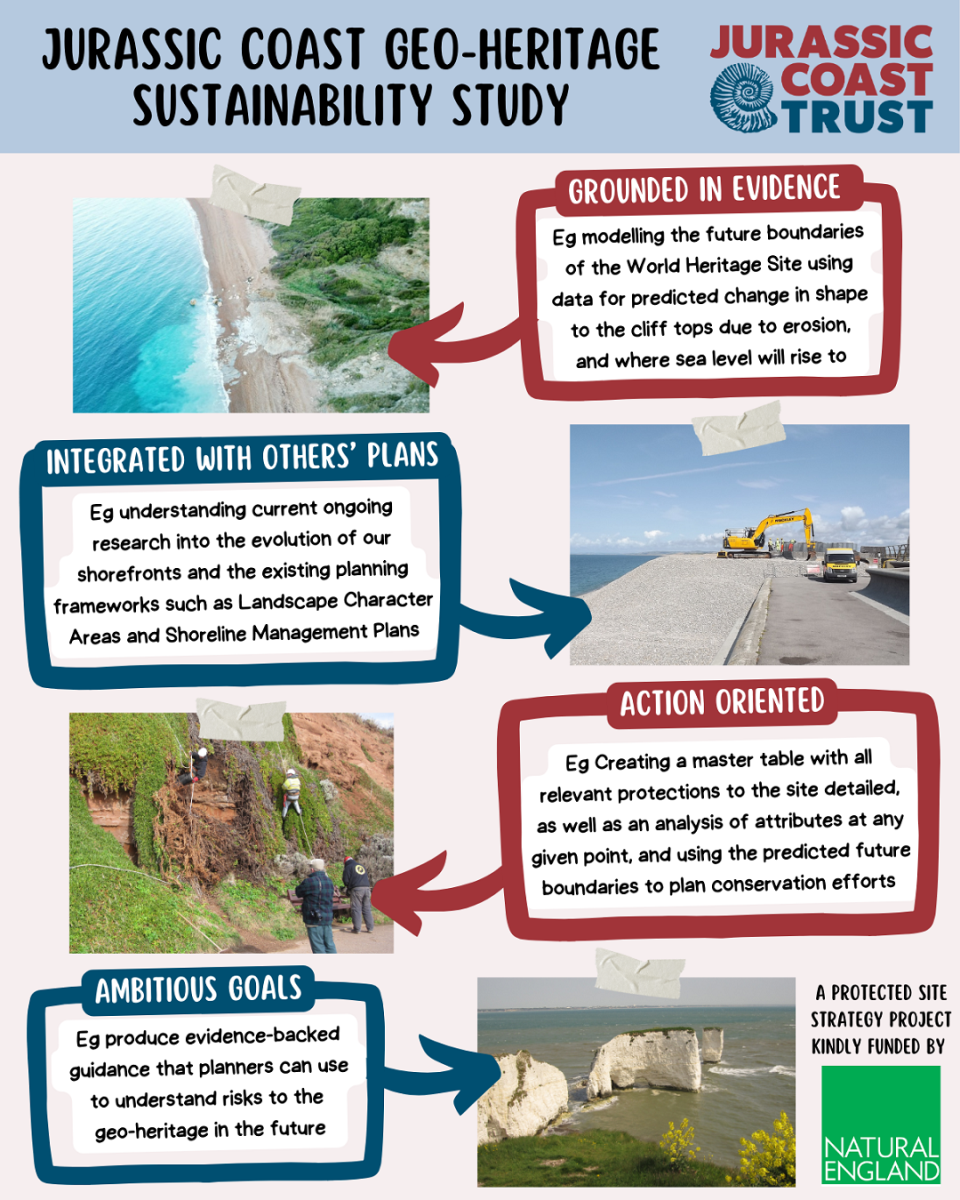The Jurassic Coast Geo-Heritage Sustainability Study project aims to investigate and provide a better understanding of the future risks to the Outstanding Universal Value of the Jurassic Coast UNESCO World Heritage Site, and understand how we might better conserve the unique geodiversity at the site.
The Environment Act 2021 sets out the Government’s aim to put plans in place for nature to recover for future generations to enjoy, and as part of this “Protected Site Strategies” aim to provide bespoke toolkits for key areas in the UK. With five pilot studies and seven supplementary research projects (of which one is the Jurassic Coast) being undertaken as part of the Research and Development phase, these projects investigate different aspects of the natural environment. This is where our Jurassic Coast Geo-Heritage Sustainability Study project comes in. The Jurassic Coast Geo-Heritage Sustainability Study will aim to provide Natural England with the basis and background for a Protected Site Strategy, and also will help to inform how they might integrate geodiversity and landscapes within wider Protected Site Strategies which will be undertaken in the future.

We have given it the title of the Jurassic Coast Geo-Heritage Sustainability Study because we think it highlights the two key points that need to be addressed in the Protected Site Strategy for this area. Firstly, that geology is the heart of why the Jurassic Coast has its UNESCO World Heritage Site designation, and this is what has to be conserved. Secondly, that our project is investigating both the human impacts on the coast, and the potential risks that are likely to occur due to climate change such as erosion, increased storm action and sea level rise.
As part of the project, Saskia and Sam were invited in May to attend a meeting hosted by Natural England in Cumbria. They attended to present the progress on the project so far, and to learn from other strategies that are being undertaken at the other investigation sites around the UK. The presentation went well, with attendees learning about the expected challenges to the Jurassic Coast UNESCO World Heritage Site through the desk study information that has been gathered so far for the project.
They also heard how other sites are being impacted (or expect to be impacted) by the effects of climate change, and the plans that the practitioners of these areas are putting into place to either combat changes, adapt to them or learn what they may have to accept. It was clear that challenges faced in one area are often applicable to many places across the UK and it was positive that these sessions enable ideas to be shared amongst those writing the strategies and monitoring programmes, which will impact how Protected Site Strategies will be rolled out across the UK in the future.
Related
Comments
Comments are disabled for this post.


 to add an item to your Itinerary basket.
to add an item to your Itinerary basket.



